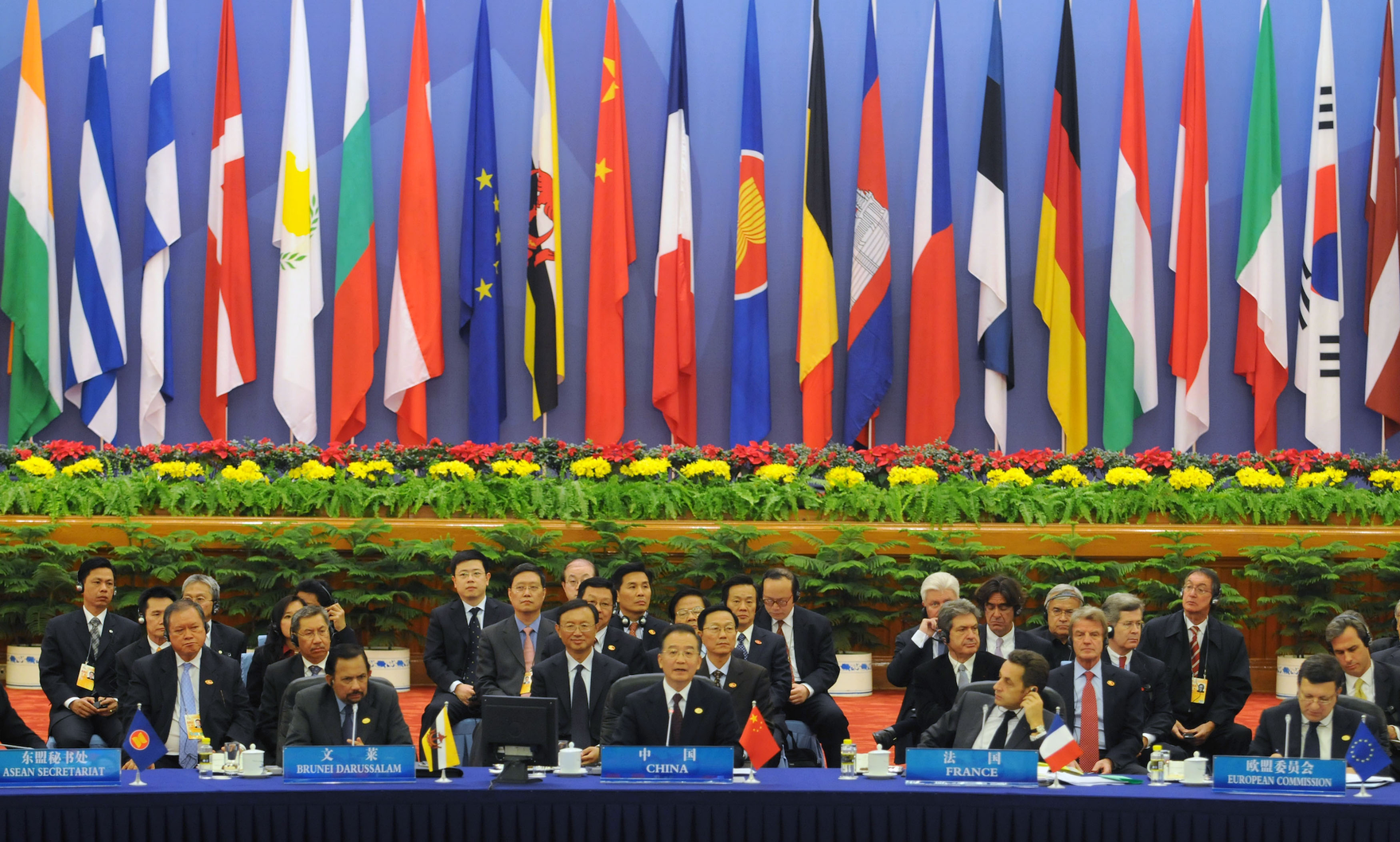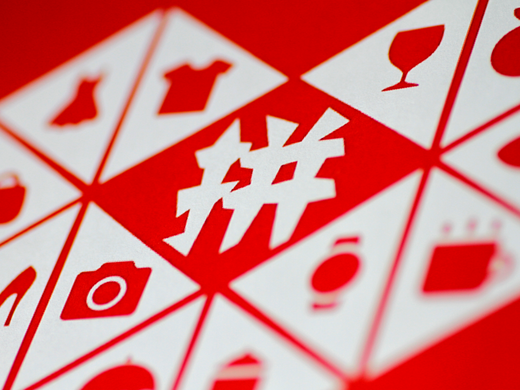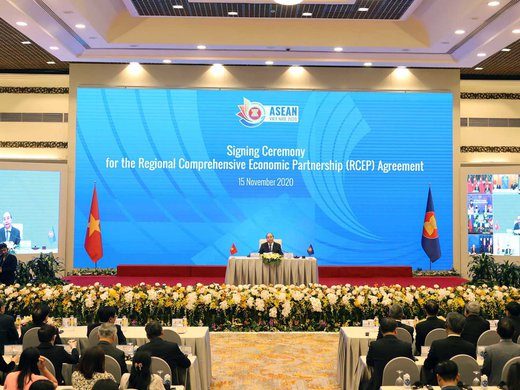Recent years have witnessed the growing use of trade measures as geopolitical weapons. In response, the European Union is introducing a new anti-coercion instrument (ACI) to deal with cases of economic coercion, as follows: “where a third country seeks, through measures affecting trade or investment, to coerce the Union or a Member State into adopting or refraining from adopting a particular act.” While no specific country is named, it is obvious that the biggest elephant in the room is China.
Will the ACI be effective against Beijing? To answer this question, we need to first understand what drives China’s economic coercion.
China is not, of course, a democracy. There are no elections through which the ruling Chinese Communist Party (CCP) can renew its mandate and legitimacy. Instead, for the past 45 years, the CCP has largely relied on so-called “performance legitimacy,” founded on economic growth. As economic growth has levelled off in recent years, however, the CCP has shifted to a new anchor: the “China Dream,” with the “great rejuvenation” of the Chinese state at its core.
The “great rejuvenation” narrative is one in which China restores its long-lost glory, resuming its historic place as the only great power of a tribute system. Such a system includes two key features when it comes to foreign relations and trade.
First, the traditional tribute system is quite different from the Westphalian system, in which all countries, great and small, are regarded as equal sovereigns. Instead, the tribute system is modelled after the Confucian social order, in which China, the “superior” state, plays the role of the big brother, while the surrounding smaller states, as younger brothers, are expected to defer.
Second, in the tribute system, trade is not regarded as a mutually beneficial exchange, conducted according to the Ricardian model based on comparative advantage. Instead, trade with China is regarded as a reward to be bestowed on foreign tributary states.
As a precondition, such states must first accept unequal status, just as, in 1793, Lord Macartney was expected to perform the “kowtow ritual” during his audience with the Qianlong Emperor.
Such a ritual is not perfunctory. Rather, it’s a subtle way to indicate the “tributary” state’s acceptance of its place in the system. We can find its equivalent today in Beijing’s insistence that every country reaffirm its recognition of the “One-China” principle, regarding Taiwan, as a prerequisite for a diplomatic and trade relationship.
Once we understand this world view, we can see that the European Union is a poor fit for the tribute system. Individually, each EU member state is relatively small, but collectively, they form the second-largest economy in the world. To deal with the European Union, China has largely employed the tactic of “divide and rule,” just as the Kingdom of Qin did with the other states during the Warring States period, before it unified China.
In particular, China has recognized that the Central and Eastern European countries (CEEC) could serve as a lever of influence in the European Union, due to their shared history of Communism and weaker economies. This is why China has been promoting cooperation with the CEEC since 2012, and trying to integrate them into the Belt and Road Initiative.
This is also why the European Union’s ACI can be an effective response to Chinese economic coercion, as it turns the European Union’s perceived weakness in numbers into its advantage. In effect it means that EU member states, to borrow a Chinese saying, are no longer scattered chopsticks to be broken one by one, but are tied together to form an unbreakable bundle.
Regardless of the effectiveness of the ACI, there’s no question China will retaliate.
At the same time, one also must be realistic and recognize that the ACI has its limitations. In democracies, trade and economic sanctions result in slower economic growth, rising unemployment and the collapse of the ruling government at the polls. There is no such mechanism in China. And again, the basis of legitimacy for the CCP has shifted in recent years from economic performance to “great rejuvenation.” This means that standing firm against foreign sanctions may, paradoxically, bolster support for the CCP, at least in the short term.
Indeed, most Chinese tend to agree with former Chinese State Councillor Dai Bingguo’s formulation of China’s core interests, which prioritize the preservation of the country’s political system and national security above all, followed by national sovereignty and territorial integrity, and economic development last. In this light, economic losses are regarded as the necessary price of defending China’s interests. Thus, broad trade sanctions that do not directly affect the individual interests of Chinese nationals may not be always effective.
Regardless of the effectiveness of the ACI, there’s no question China will retaliate. As a country with a painful memory of “unequal treaties,” China resents foreign impositions. Since the enactment of its first Foreign Trade Law in 1994, it has explicitly reserved the right to retaliate against any “discriminatory trade measures.”
Since then, China’s arsenal of retaliatory trade measures has been further reinforced with the trade barrier investigation mechanism, the unreliable entity list, the blocking statute and the anti-foreign sanctions law. With President Xi Jinping’s recent call for “using legal means to conduct international struggle,” it seems likely the legal toolbox will be further beefed up in the coming years.
Moreover, China can be expected to try to play the United States against the European Union. We saw this during the US-China trade war, where the latter accelerated negotiation of the EU-China Comprehensive Investment Agreement, concluding it by the end of 2020.
So how to play this four-dimensional chess with China?
Europe’s ACI provides a good starting point. But it must be coupled with coordinated actions — not only inside the European Union, but also with Europe’s allies and partners from around the world. The recent universal sanctions against Russia in response to its invasion of Ukraine demonstrate the great potential of such solidarity. Indeed, it is only through a show of solidarity that the ACI can be made to work.



